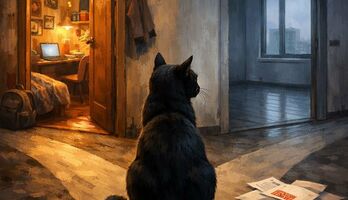Беликова Е.К., Саратовская Л.Б. - The United Kingdom and United States of America in Past and Present (1268141), страница 11
Текст из файла (страница 11)
Thenational channels specialize in different tastes. Radio 1 caters for popmusic; Radio 2 has light music, news, and comedy; Radio 3 providesclassical and modern serious music, talks, discussions and plays; Radio 4concentrates on news reports, analysis, talks and plays; and Radio 5 Live(established 1990) has sport and news programmes.The role and inuence of television. Television is an inuential anddominant force in modern Britain, as well as a popular entertainmentactivity. A large number of the programmes shown on television aremade in Britain, although there are also many imported American series.A few programmes come from other English-speaking countries, such asAustralia, New Zealand and Canada. But there are relatively few foreignlanguage productions on British television and these are either dubbed or43subtitled.
Although British television has a high reputation abroad and therange of programmes is very considerable, they vary widely in quality.News reports, documentaries and current-affairs analyses are generallyof a high standard, as are dramatic, educational, sporting, natural historyand cultural productions. But there is also a wide selection of series, soapoperas, lms, quizzes and variety shows which are of doubtful quality.The recent additions of Reality-TV (such as Big Brother and Survivor)and similar genres have led to charges of a ‘dumbing-down’ of Britishtelevision. Programmes are calculated to appeal to a mass audience andhigh ratings, which the television companies need to attract advertisingand justify expenditure. However, a MORI/Voks Pops poll in August2001 reported that 61 % of fteen to twenty-four-year-olds believed thatreality television helps to teach them about the ways in which peopleinteract with each other.
But rather than imitating shocking behaviour inthe programmes they are grateful for the chance to learn important lifelessons and skills. Television, in this view, is taking on a parenting andteaching role.Today, there is erce competition among broadcasters to attract viewersand advertising revenue. In order to attract the biggest share of theaudience similar programmes are shown at the same time on the majorchannels. The BBC in particular is criticized for its failure to providehigh-quality arts, drama and news programmes, with a slide intocommercialism in the battle for ratings.
It is argued that the BBC mustmaintain its public service obligations to quality and creativity in order tojustify its universal licence fee. Voices have been raised about the levelsof sex, violence and bad language on British television, particularlybefore the ‘watershed’ of 9 p.m. when young children may be watching.Some individuals have attempted to reform and inuence the kind ofprogrammes that are shown. The Conservative government used toconsider that violence, sex and obscenity on television did affect viewersand was concerned to ‘clean up’ television. A Broadcasting StandardsComplaints Commission monitors programmes, examines complaints,establishes codes of conduct for the broadcasting organizations and worksout its rules concerning invasion of privacy by broadcasters.
BritishSocial Attitudes 2000–01 suggests that Britons are becoming morepermissive about the portrayal of sex in the media if this is relevant to aplot, and more permissive if it occurs outside a family context on adultchannels, video and cinema.44Digital broadcasting will increase television channels and maytransform the medium into an interactive force which combines theInternet and personalized programming in one package. But broadcastersrisk losing audiences and revenue as more people switch to the Internetitself as an alternative to television. In 2000, 25 per cent of Britishhouseholds had Internet access.Oxford survey on internet use in Britain. The Oxford Internet Institutehas released the latest report in a series OII surveys (2007) that examineinternet access, use and attitudes in Britain.
A key finding is that a‘digital divide’ continues to exist with retired users three times less likelyto use the internet than students. Ex-users are most likely to have stoppedgoing online due to a lack of interest and access, but non-users cited ‘lackof skill’ as the main reason for not using the internet. Internet users thinkthe internet is as reliable as television, but those who do not use theinternet trust the television more as a source of information.Other interesting trends to emerge from the study are:- 17 % of internetusers currently maintain an online social networking profile;-- 85 % of users in Britain use a broadband connection for home access ;-- One third of student users have met someone online, and 13 per centhave met a person offline who they first met online;-- 93 %t of all internet users send emails and as many as 60 per cent useinstant messaging;-- 72 % of internet users believe that 'the internet can be addictive'.Dr Ellen Helsper, OxIS coordinator from the OII, said: ‘Men use theinternet more than women for everything but health-related topics, andretired users are less likely to use it than students”.OII publishes OxIS every two years to chart the changing attitudes anduses of the internet in Britain.
The survey is sponsored by the BritishLibrary. The OII, a department within the University’s Social SciencesDivision, is a leading centre for the study of the internet and society,which focuses on internet-related research and teaching, and oninforming policy makers and practitioners.1. Answer the questions: 1. What can you say about the reading habits of theBritons? 2. What is the reason why the British continue to buy newspapers? 3.How are British newspapers divided? 4.
How can you describe the differencebetween broadsheets and tabloids? 5. What kind of newspapers are mass-market?6. Why has BBC received such a high reputation in the world? 7. What is theplace of the Internet in the media today? 8. Do you use the Internet for newsmore often than read newspapers and magazines?452.Give the English equivalents for: Еженедельная газета, газетациркулирующая по всей стране, еженедельный журнал, ежемесячныйжурнал, периодическое издание. экземпляр (газеты, журнала),выпуск(номер) газеты, редактировать - редактор, тираж, подписка,доставлять , приложение, статья о…, сообщение о…, последние события,освещение в печати заявление, информация о…, информировать о…,обзор, спутниковое и кабельное вещание, широкоформатное газета,малоформатное газета, газетный заголовок, заглавие.3.
Fill in the blanks with the words and expressions from the text1. In Britain it generally … the print industries 2.Their growth and variety havegreatly … information dispersal, news availability and entertainmentopportunities. 3.But the media provoke …about what is socially and morallypermissible in their content and methods.4. Discussion problems: 1. What’s the difference between “quality” and“popular” newspapers? 2. What do you know about Reuter? 3.
Which televisionprogrammes are the most interesting for you?CHAPTER VII. FOLKLORE AND LITERATURERead the Vocabulary:To stem from-происходить, произрастатьweird-странныйAppeal-призывabundant -обширныйDepict-отражатьto transmit-передаватьTo be confined to-быть привязанным к чему –то;Antecedents -предшественникиAbundant –обширныйloreзнанияAllude – упоминать, ссылатьсяpicturesque-живописныйStanza -строфаfeudsвраждаAntecedents -предшественникиbawdy- вульгарныйDelineation- очертаниеpennonфлажокThe studies of the British culture and therefore understanding of thenational character of the English cannot stand apart from the research ofits important product – folklore. The folklore and folk customs ofEngland developed over a long chain of centuries.
Some ancient customswere passed from Celtic to Germanic generations and further. Invadersand settlers brought with them their own beliefs and lore, which mixedwith older traditions. Some stories can be traced back to their roots, whilethe origin of others is uncertain or disputed. While some customs wereneglected or forgotten over the years, the new ones appeared. The mainreason to uniqueness of British culture lies on the surface: Great Britain isan island populated by the nations that had to develop and go the long46way of its history being separated from the rest of the world by water.These very characteristics turned them into very interesting and specialpeople, whose history and culture are one of the richest in the world.British folklore includes traditions, customs, beliefs and systems ofvalues of the mythology of the Anglo-Saxons, Welsh, Scottish and laterNormans influence.
















